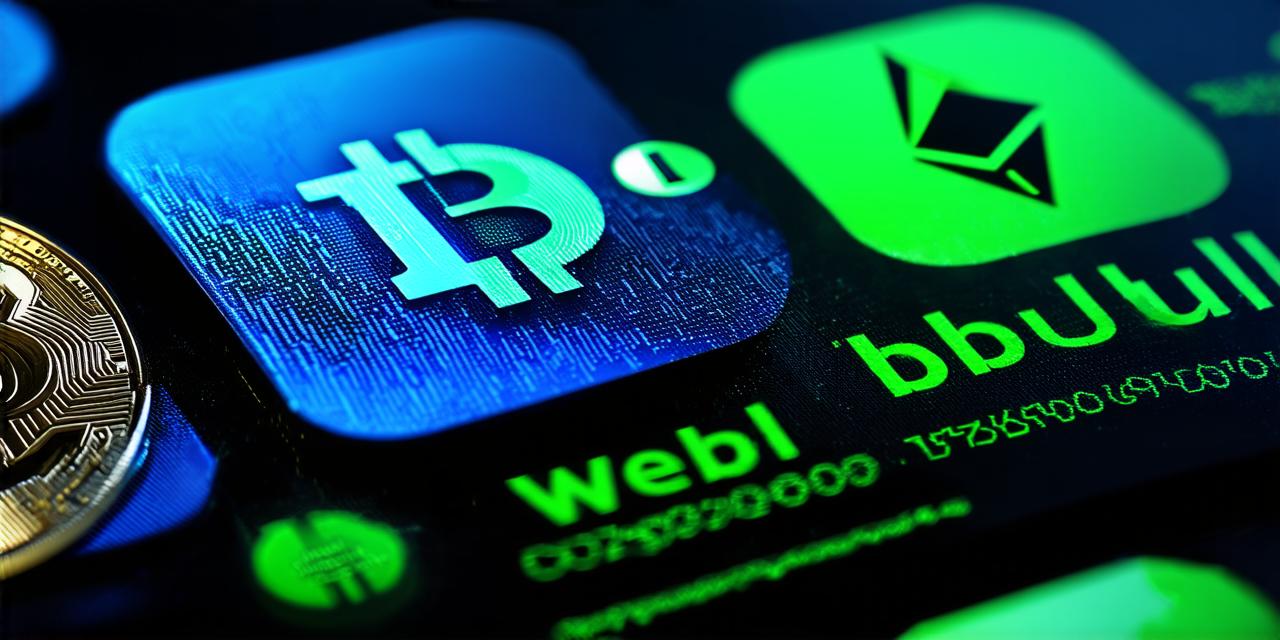Introduction
Webull is a popular online trading platform that has recently added support for cryptocurrencies. This has sparked interest among crypto developers who are looking to purchase and sell digital assets using this platform. However, many are still unsure about the process of buying cryptocurrency on Webull and how it compares to other platforms.
The Basics of Cryptocurrencies on Webull
Webull has partnered with Coinbase, one of the largest cryptocurrency exchanges in the world, to provide users with access to a wide range of digital assets. This means that users can now purchase and sell Bitcoin, Ethereum, Litecoin, and other popular cryptocurrencies on Webull.
To get started, you will need to create an account on both Webull and Coinbase. Once your accounts are set up, you can transfer funds from your Coinbase account to your Webull account. From there, you can place orders to purchase cryptocurrency using the Webull trading platform.
One of the key advantages of buying cryptocurrency on Webull is its user-friendly interface and low fees. Webull charges a small commission for each trade, which is competitive with other major exchanges. Additionally, Webull offers a wide range of tools and resources to help users make informed investment decisions, including real-time market data, charting tools, and educational materials.
Comparing Webull to Other Cryptocurrency Platforms
While Webull is a relatively new player in the cryptocurrency space, it has quickly gained popularity among users due to its user-friendly interface and low fees. However, there are other platforms available for purchasing cryptocurrency that crypto developers may want to consider as well.
One of the most popular cryptocurrency exchanges is Coinbase, which Webull has partnered with to provide users access to a wide range of digital assets. Another popular option is Binance, which offers a wider range of cryptocurrencies for trading and has lower fees than some other platforms.
Ultimately, the best platform for purchasing cryptocurrency will depend on your individual needs and preferences. Webull may be a good choice for those who are new to trading or who value user-friendliness and low fees. However, more experienced traders may prefer a platform with a wider range of assets and lower fees.
Real-Life Examples of Purchasing Cryptocurrency on Webull
To help illustrate the process of purchasing cryptocurrency on Webull, let’s take a look at an example.
Suppose you are a crypto developer who wants to purchase some Bitcoin using your Webull account. To do this, you would first need to transfer funds from your Coinbase account to your Webull account. Once your funds have been transferred, you can place an order to purchase Bitcoin on the Webull trading platform.
To do this, you would navigate to the “Trade” section of the Webull platform and select “Cryptocurrency” from the list of available assets. From there, you would choose Bitcoin and enter the amount you want to purchase. You would then review your order and submit it for execution.
If your order is accepted, you will be charged a small commission by Webull for each trade. Once your order has been filled, the Bitcoin will be credited to your account and you can start using it to make purchases or sell it for profit.
FAQs About Purchasing Cryptocurrency on Webull

While purchasing cryptocurrency on Webull is generally a straightforward process, there are some common questions that crypto developers may have. Here are some answers to frequently asked questions:
Q: How do I transfer funds from my Coinbase account to my Webull account?
A: To transfer funds from your Coinbase account to your Webull account, you will need to link the two accounts and initiate a transfer. This process is typically straightforward and can usually be completed within a few minutes.
Q: What fees do I need to pay when purchasing cryptocurrency on Webull?
A: Webull charges a small commission for each trade, which is competitive with other major exchanges. Additionally, you may also incur additional fees, such as network fees or mining fees, depending on the specific cryptocurrency you are trading.
